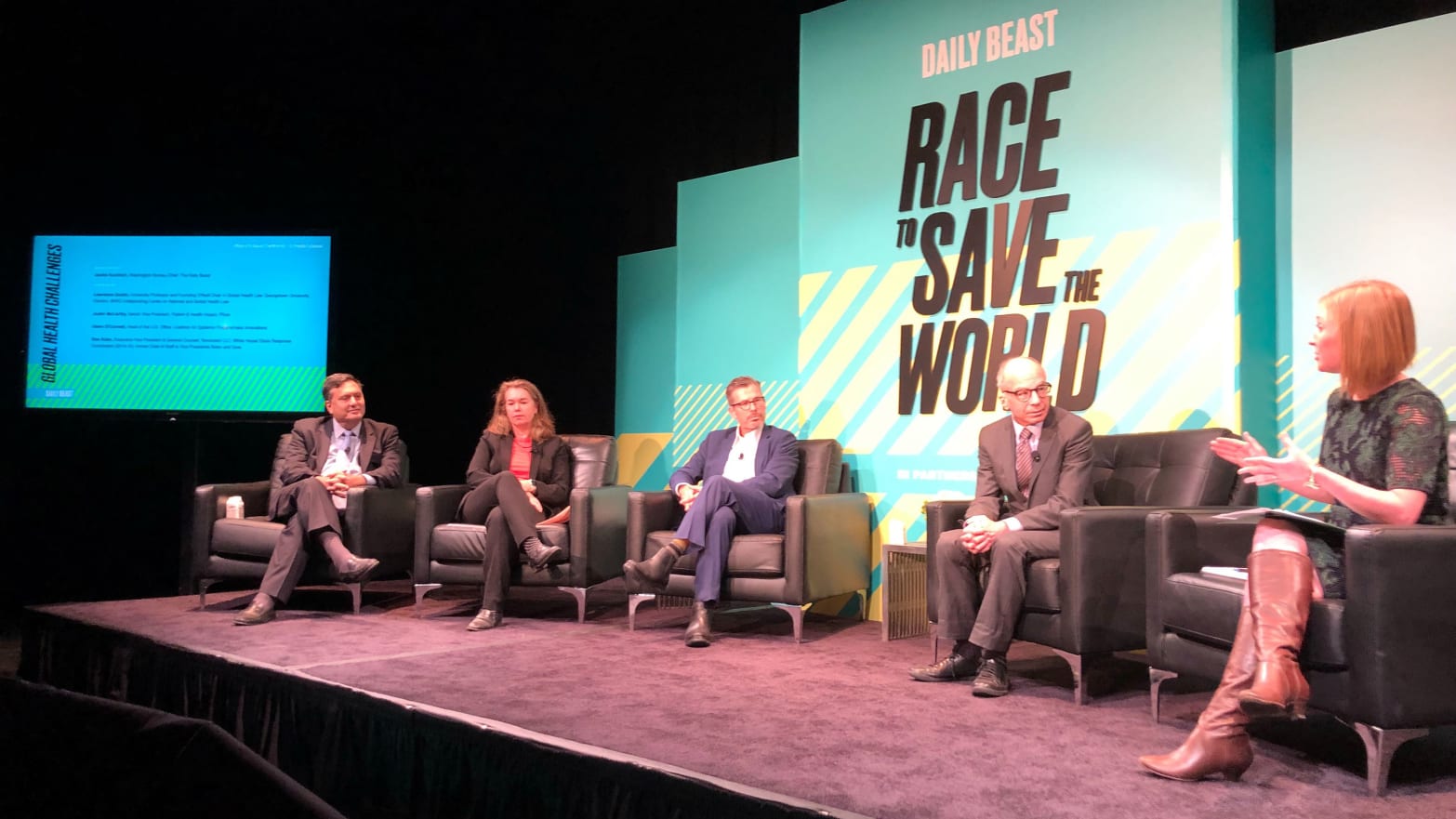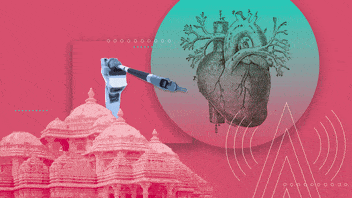Race to Save the World: Experts Sound Off on Saving Earth From Climate Catastrophe
The rise of fascism around the world has contributed to a spike in neo-Nazi activity and hate crimes, but Keya Chatterjee of the U.S. Climate Action Network says it’s also made climate change more difficult to address than ever before.
“It’s hard to reduce emissions in a neo-fascist world,” she explained Thursday at the Race to Save World event, hosted by The Daily Beast in partnership with Pfizer. “Movements right now are realizing that we can’t solve this issue in a bubble, we have to take on a range of social issues… we have to grow and we have to be strategic.”
The changing climate and increasingly polarized political environment are only two of the many issues humanity now faces with the clock ticking. Other challenges to the Earth’s population—including potential epidemics and an uptick in the number of people facing hunger—were also discussed at the Race to Save World event, in which experts came together to discuss ways to tackle these problems and avoid the most dire of consequences.
Chatterjee said she hopes to see a world where she isn’t worried about her son’s future—one without a warming climate and a society that only seems to care about individual well-being.
“Can we take care of each other or is it everyone out for themselves?” she said at a panel discussion led by The Daily Beast’s national security reporter, Spencer Ackerman. “I know in my 9-year-old son’s lifetime that more storms will come… I want him in a society where people are kind. There are people that don’t want us to do this, and we need to knock them out of power so we can do it.”
Chatterjee credited the grassroots climate movements for putting an emphasis on community and forcing those in power to engage in meaningful discussions about real solutions. Sarah Ladislaw, the director of the energy and national security program at the Center for Strategic and International Studies, also said the “rich and powerful can’t not have answers anymore” on climate change.
“I think we’ve made remarkable progress on half-ass effort. What if we really try?” Ladislaw asked. “I think there’s a big shift in people—they didn’t accept the problem before and now they accept the problem. Some of them have accepted their role in the climate problem, but now they have to take the steps to fix it. I still think there’s a problem with this.”
While skepticism about “neo-fascist” systems has invigorated efforts to solve climate change, Elaine Kamarck—director of the Center for Effective Public Management at the Brookings Institution—also warned at one of the event’s fireside chats that trust in the government will be key to fomenting change worldwide.
“Climate change is the most challenging collective action problem—we have collective action but no trust in government,” she said. “We have to do this internationally and it’s really hard when you have no faith in government.”
But while trust in government may be necessary to bring the Earth back from the brink of devastation, experts warned that that only goes so far, as governments themselves are contributing to global epidemics and pandemics. Ron Klain, a former White House Ebola response coordinator, said the current brand of “isolationism” favored by President Donald Trump could mean “death.”
“If we don’t engage with the world, the sicknesses will come here for sure,” he said at a panel on epidemics moderated by Jackie Kucinich, the Beast’s Washington bureau chief. “The best way to control these things to help counties out… no wall we can build that’s high or wide enough to keep infectious diseases out of this country.”
Panelists also spoke about the proliferation of anti-vaccine rhetoric, which has created breeding grounds for highly preventable viruses to spread.
“It’s an education issue. The data is there, science was irrefutable, but it’s still a really growing problem,” Justin McCarthy, senior vice president of patient and health impact at Pfizer, said. “There’s no better way to address a disease than to prevent it from happening.”
Klain disagreed, saying that the spread of vaccine misinformation is indicative of a “cultural problem” and a “deep conspiratorial mood” that has permeated the U.S.
In a third panel led by The Daily Beast’s national security reporter Erin Banco, experts spoke about the world’s dwindling food and water resources, which have been greatly affected by climate change, violence and conflict, as well as the volatile financial system, according to panelists. Vimlendra Sharan, a director at the Food and Agriculture Organization of the United Nations, noted that world hunger has only increased in the past four years.
“We are trying to feed the global population by starving the planet—and if we starve the planet, we’ll have dire consequences down the road,” Sharan said. “If we do not do anything, we are in for very tough times.”
Pete Pearson, the senior director for food loss and waste at World Wildlife Fund, said humanity needs to hold itself accountable for food waste as more people are going to bed hungry.
“It’s a math equation. We’re running at a deficit and you can’t run spending like that. You’ll hit a resource shortage,” Pearson said. “We are placing value at food at every point, it has to be unacceptable to waste food from beginning to end.”












Follow Us!